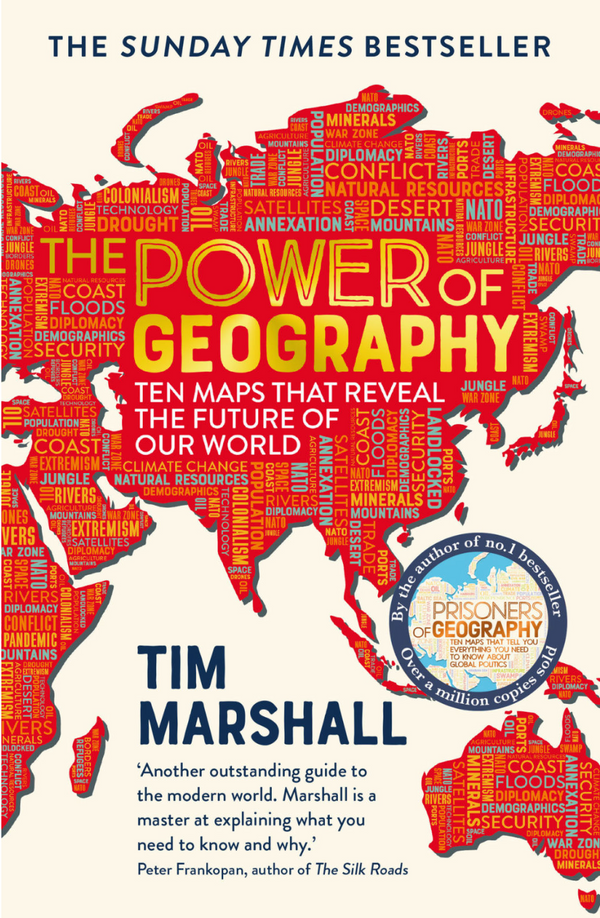By Tim Marshall (2021)
Pages: 360, Final verdict: Great-read
If you've have ever asked me for a book recommendation, odds are that Prisoners of Geography was the one you got. In it - covered in this review - Tim Marshall does a remarkable jobs showing us how much, even today, geography plays a role in the shape of a nation's success.
So I was naturally excited when The Power of Geography came out. It promised to be the sequel to the book I felt enamored with, and cover "some of the events and conflicts that have emerged in the twenty-first century with the potential for far-reaching consequences in a multipolar world.".
Volume II: 10 new maps with far less insights
This time around Marshall picked 10 different countries/regions to delve into. Amongst them is a country in Oceania (Australia), four in Europe (Spain, Greece, Turkey, the UK), two in the Middle East (Iran and Saudi Arabia), two more in Africa (The Sahel region and Ethiopia) and one chapter dedicated to Space.
I found the chapter on Ethiopia the richest of all ten. Marshall demonstrates how the East African country's control of the Blue Nile and the construction of the Grand Ethiopian Renaissance Dam threatens Egypt's access to water, and how its geography contributes to the conflicts in the Tigray region. As it started producing electricity in February 2022 with the goal to "bring light to 60% of the population who is suffering in darkness", the effect of the damn in Egypt's water supply and food production - responsible for $4.1 billion in exports in 2021 - will be one to follow.
The starting point of any country's story is its location in relation to neighbours, sea routes and natural resources.
All chapters follow a similar structure. After starting with an introduction of the region's history, Marshall picks an item top of mind in its current affairs (e.g. Spain's insurgence of independent movements in Catalonia) and analyzes it from a geopolitical lenses - how the nations mountains, rivers, energy reserves, neighbours and other geographical traits shape how the region behaves in the face of adversity.
Marshall seems to have a view of the world where territory expansion is still paramount to how countries play their geopolitical game. But the truth is that, with the exception of Russia, the risk of a China-Taiwan invasion and the 2018 invasion of Yemen-controlled Socotra by the UAE, territorial wars are scarce or with limited armed conflict (e.g. Nagorno-Karabakh war).
Bottom line
The Power of Geography was not what I expected. It reads a lot more like a short story of the history of each region than a book about geopolitics.
Sure. There are rich stories of how the lack of rivers in Saudi Arabia leads to fresh water scarcity or how the gas reserves in the Mediterranean contribute to the tensions between Athens and Ankara, but those geopolitical anecdotes are rare and not the backbone of the book.
I had a hard time picking the verdict for the book. While Prisoners of Geography was an eye opener to the role that geography still plays in the world affairs, Powers of Geography tries too hard to build on top of the success of the original. It is still a great-read, and I learned a from it, but I couldn't help by feel disappointed by it. Maybe just like in cinema, this might just be a case of the curse of the sequel.
Learn more
- Buy the book



